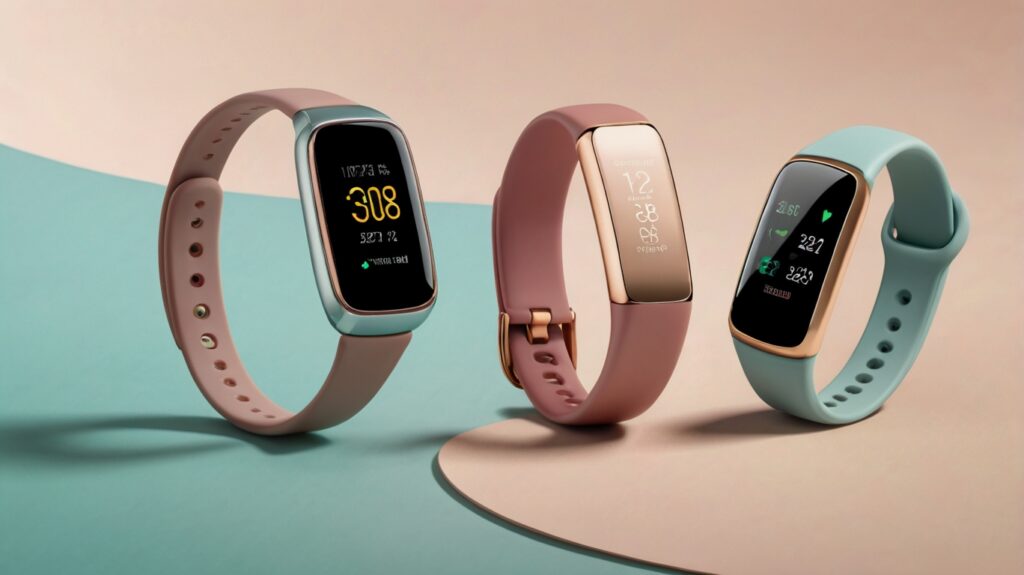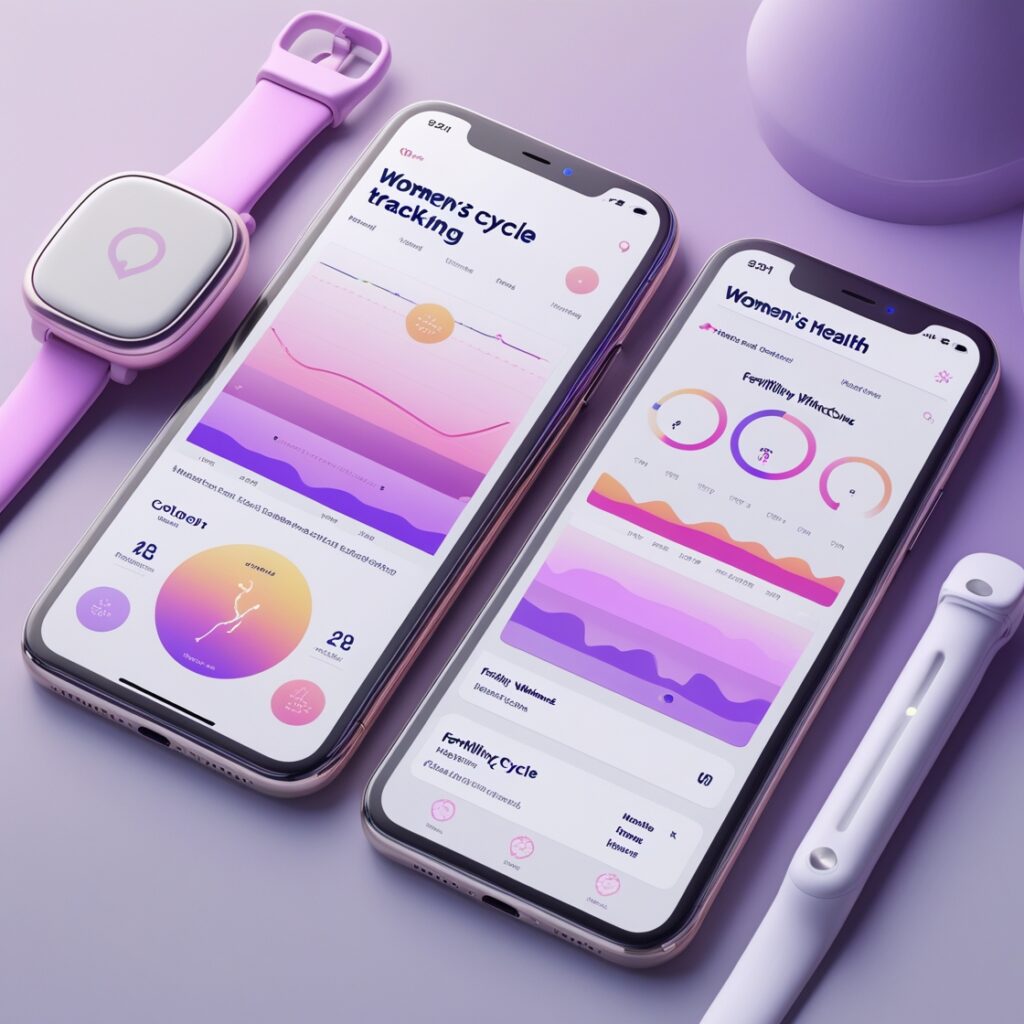The intersection of technology and women’s health has reached a transformative tipping point. As artificial intelligence and wearable devices become increasingly sophisticated, they’re revolutionizing how women monitor, understand, and manage their health across all life stages. This comprehensive guide explores the current landscape of tech-enabled women’s health solutions and their profound impact on wellness outcomes.
Understanding the Femtech Revolution

Femtech, short for female technology, represents a rapidly expanding sector that merges cutting-edge technology with women’s health solutions. This innovative field addresses the historical gender gap in healthcare technology, where women’s unique health needs were often overlooked or inadequately addressed by traditional medical devices and applications.
The femtech market has experienced explosive growth, with valuations reaching $28 billion in 2023 and projections indicating a compound annual growth rate (CAGR) of 17.4% through 2030. Industry experts predict the market could reach $50 billion by 2025, driven by increasing awareness of women’s health disparities and growing investment in targeted solutions.
The Historical Healthcare Gender Gap
For decades, medical research and technology development primarily focused on male physiology, leaving significant gaps in understanding and addressing women’s health needs. This disparity extended to wearable technology and health monitoring devices, which often failed to account for:
- Hormonal fluctuations throughout menstrual cycles
- Pregnancy-related physiological changes
- Menopause symptoms and their impact on overall health
- Gender-specific cardiovascular risk factors
- Unique metabolic patterns in women
Femtech companies are now bridging these gaps by developing specialized solutions that recognize and respond to women’s distinct biological and health requirements.
AI-Powered Wearable Technology for Women’s Health

Artificial intelligence has become the driving force behind next-generation wearable devices designed specifically for women’s health monitoring. These sophisticated systems combine continuous data collection with machine learning algorithms to provide unprecedented insights into women’s wellness patterns.
Advanced Health Monitoring Capabilities
Modern AI-enabled wearables offer comprehensive monitoring features that extend far beyond basic fitness tracking:
Hormonal Pattern Recognition
- Continuous temperature monitoring to detect ovulation and fertility windows
- Heart rate variability analysis to identify hormonal fluctuations
- Sleep pattern correlation with menstrual cycle phases
- Stress level monitoring and its impact on reproductive health
Predictive Health Analytics
- Early detection of irregular menstrual patterns
- Identification of potential health risks before symptoms appear
- Personalized recommendations based on individual health data
- Integration with electronic health records for comprehensive care
Real-Time Health Alerts
- Immediate notifications for concerning vital sign changes
- Medication reminders synchronized with cycle phases
- Hydration and nutrition guidance based on physiological needs
- Emergency contact alerts for critical health events
Leading Wearable Technologies
Several innovative companies are pioneering AI-powered wearables specifically designed for women’s health:
Ava Bracelet
This FDA-approved wearable tracks nine physiological parameters during sleep, including skin temperature, resting pulse rate, and heart rate variability. The device uses machine learning to identify fertile windows with 89% accuracy, making it invaluable for both conception planning and natural family planning.
Oura Ring
While not exclusively designed for women, Oura’s advanced AI algorithms provide detailed insights into menstrual cycle patterns, sleep quality variations, and recovery metrics that are particularly relevant for women’s health optimization.
Bloomlife
Specializing in pregnancy monitoring, Bloomlife offers wearable devices that track fetal heart rate and uterine contractions, providing expectant mothers with real-time insights into their pregnancy health.
Comprehensive Women’s Health Applications

Tech-enabled women’s health solutions address multiple aspects of female wellness throughout different life stages, offering targeted support for various health concerns and conditions.
Menstrual Health and Cycle Tracking
Advanced period tracking applications have evolved far beyond simple calendar functions, incorporating AI to provide sophisticated cycle analysis and health insights.
Key Features:
- Predictive cycle modeling using machine learning algorithms
- Symptom correlation analysis to identify patterns
- Integration with wearable device data for enhanced accuracy
- Personalized health recommendations based on cycle phases
- Educational content tailored to individual cycle characteristics
Popular Applications:
- Clue: Offers evidence-based cycle tracking with comprehensive symptom logging
- Flo: Provides AI-powered predictions and personalized health insights
- Natural Cycles: FDA-approved as a digital contraceptive method
Reproductive Health and Fertility Management
AI-powered fertility solutions are transforming family planning by providing precise, personalized insights into reproductive health.
Advanced Fertility Tracking:
- Ovulation prediction with clinical-grade accuracy
- Fertility window identification using multiple biomarkers
- Conception probability calculations based on individual data
- Integration with at-home hormone testing kits
- Partner synchronization for coordinated family planning
Telehealth Integration:
- Virtual consultations with reproductive health specialists
- Remote monitoring of fertility treatments
- Digital prescription management for fertility medications
- Real-time communication with healthcare providers
Pregnancy and Maternal Health Monitoring
Wearable technology is revolutionizing prenatal care by enabling continuous monitoring of both maternal and fetal health throughout pregnancy.
Maternal Health Tracking:
- Blood pressure monitoring for preeclampsia detection
- Weight gain tracking with personalized recommendations
- Sleep quality analysis during pregnancy
- Stress level monitoring and management
- Nutrition tracking with pregnancy-specific guidelines
Fetal Health Monitoring:
- Continuous fetal heart rate monitoring
- Contraction tracking and labor prediction
- Kick counting and movement pattern analysis
- Integration with prenatal care appointments
- Emergency alert systems for concerning changes
Sexual Health and Wellness
Technology is breaking down barriers in sexual health education and support, providing women with discreet, personalized resources for sexual wellness.
Educational Platforms:
- Evidence-based sexual health information
- Personalized recommendations for sexual wellness
- Discrete consultation options with healthcare providers
- Product recommendations based on individual needs
- Community support and peer connections
Wellness Tracking:
- Libido pattern analysis in relation to hormonal cycles
- Sexual health symptom tracking
- Integration with overall health and wellness data
- Personalized tips for sexual health optimization
Menopause Management and Support
AI-powered solutions are addressing the significant gap in menopause care, providing women with comprehensive support during this critical life transition.
Symptom Management:
- Hot flash prediction and tracking
- Sleep disturbance analysis and recommendations
- Mood pattern recognition and support
- Bone health monitoring and recommendations
- Cardiovascular health tracking during menopause
Personalized Treatment Options:
- Hormone replacement therapy optimization
- Natural remedy recommendations based on symptom patterns
- Lifestyle modification suggestions
- Integration with healthcare provider care plans
- Long-term health risk assessment and prevention
Regulatory Considerations and Compliance
As femtech solutions become more sophisticated and medically relevant, regulatory compliance has become increasingly important for ensuring user safety and data protection.
FDA Approval and Medical Device Classification
Many advanced femtech products now require FDA approval, particularly those making medical claims or providing diagnostic information. Key considerations include:
- Class I Devices: Basic wellness trackers with minimal risk
- Class II Devices: Moderate-risk devices requiring 510(k) clearance
- Class III Devices: High-risk devices requiring premarket approval
Data Privacy and Security
Women’s health data is particularly sensitive, requiring robust privacy protections and security measures:
HIPAA Compliance:
- Secure data transmission and storage
- User consent management
- Data access controls and audit trails
- Breach notification procedures
International Privacy Standards:
- GDPR compliance for European users
- Data localization requirements
- User rights management (access, deletion, portability)
- Third-party data sharing restrictions
Implementation Strategies for Healthcare Providers

Healthcare providers are increasingly integrating femtech solutions into their practice to enhance patient care and improve health outcomes.
Clinical Integration Approaches
Remote Patient Monitoring:
- Continuous health data collection between appointments
- Early intervention capabilities for concerning trends
- Reduced need for frequent in-person visits
- Enhanced patient engagement and compliance
Data-Driven Care Plans:
- Personalized treatment recommendations based on continuous monitoring
- Objective health metrics for treatment evaluation
- Improved patient-provider communication
- Evidence-based care optimization
Cost-Benefit Analysis for Healthcare Systems
Potential Benefits:
- Reduced healthcare costs through early intervention
- Improved patient satisfaction and engagement
- Enhanced diagnostic accuracy through continuous monitoring
- Streamlined care delivery and resource allocation
Implementation Considerations:
- Initial technology investment and training costs
- Data integration with existing electronic health records
- Staff training and workflow adaptation
- Patient education and adoption support
Future Trends and Innovations
The future of tech-enabled women’s health promises even more sophisticated solutions that will further personalize and optimize healthcare delivery.
Emerging Technologies
Voice Technology Integration:
- Hands-free health data input and queries
- AI-powered health assistants for personalized guidance
- Integration with smart home ecosystems
- Accessibility improvements for users with disabilities
Genomics and Personalized Medicine:
- Genetic testing integration for personalized health recommendations
- Pharmacogenomics for optimized medication selection
- Hereditary risk assessment and prevention strategies
- Precision medicine approaches to women’s health conditions
Advanced AI and Machine Learning:
- Predictive modeling for disease prevention
- Natural language processing for symptom analysis
- Computer vision for health assessment
- Federated learning for privacy-preserving research
Market Expansion and Accessibility
Global Market Growth:
- Expansion into underserved markets and regions
- Culturally sensitive product development
- Multilingual support and localization
- Affordable pricing models for broader accessibility
Healthcare Equity Initiatives:
- Solutions addressing health disparities
- Community-based implementation programs
- Partnership with public health organizations
- Research focused on diverse populations
Challenges and Considerations
Despite significant advances, several challenges remain in the tech-enabled women’s health space that require ongoing attention and innovation.
Data Accuracy and Reliability
Sensor Limitations:
- Environmental factors affecting measurement accuracy
- Individual physiological variations
- Device calibration and maintenance requirements
- Integration challenges between multiple data sources
Algorithm Bias:
- Training data diversity and representation
- Cultural and demographic bias in AI models
- Continuous model validation and improvement
- Transparency in algorithmic decision-making
User Adoption and Engagement
Barriers to Adoption:
- Technology literacy and comfort levels
- Privacy concerns and data sharing hesitancy
- Cost and insurance coverage limitations
- Healthcare provider acceptance and recommendation
Engagement Strategies:
- User-friendly interface design
- Personalized onboarding and education
- Community features and peer support
- Gamification and motivation techniques
Conclusion and Call to Action
Tech-enabled women’s health represents a paradigm shift in how we approach female wellness, offering unprecedented opportunities for personalized, proactive healthcare. The integration of AI and wearable technology is not just improving health outcomes—it’s empowering women to take control of their health journey with data-driven insights and evidence-based recommendations.
As this field continues to evolve, collaboration between technology developers, healthcare providers, and women themselves will be crucial for creating solutions that truly meet the diverse needs of female health across all life stages. The future of women’s health is digital, personalized, and more promising than ever before.
Take Action Today:
- Research femtech solutions that align with your health goals
- Discuss wearable technology options with your healthcare provider
- Stay informed about emerging technologies and their potential benefits
- Advocate for comprehensive women’s health technology in your community
Frequently Asked Questions
Q: Are AI-powered health wearables accurate enough for medical decision-making?
A: While AI-powered wearables provide valuable health insights, they should complement, not replace, professional medical care. FDA-approved devices offer clinical-grade accuracy for specific measurements, but always consult with healthcare providers for medical decisions.
Q: How secure is my personal health data with femtech applications?
A: Reputable femtech companies implement robust security measures including encryption, HIPAA compliance, and strict data access controls. Always review privacy policies and choose applications with strong security credentials and transparent data practices.
Q: Can wearable technology help with fertility planning?
A: Yes, advanced wearables can track multiple fertility indicators including basal body temperature, heart rate variability, and sleep patterns to identify fertile windows with high accuracy. Some devices are FDA-approved for fertility awareness methods.
Q: What’s the difference between consumer wellness trackers and medical-grade femtech devices?
A: Medical-grade devices undergo rigorous testing and FDA approval processes, offering clinical-level accuracy and reliability. Consumer wellness trackers provide general health insights but may not meet medical standards for diagnostic or treatment purposes.
Q: How much do comprehensive femtech solutions typically cost?
A: Costs vary widely, from free basic apps to premium wearables costing $200-$500. Many solutions offer subscription models ranging from $5-$50 monthly. Some insurance plans are beginning to cover certain FDA-approved femtech devices and services.



